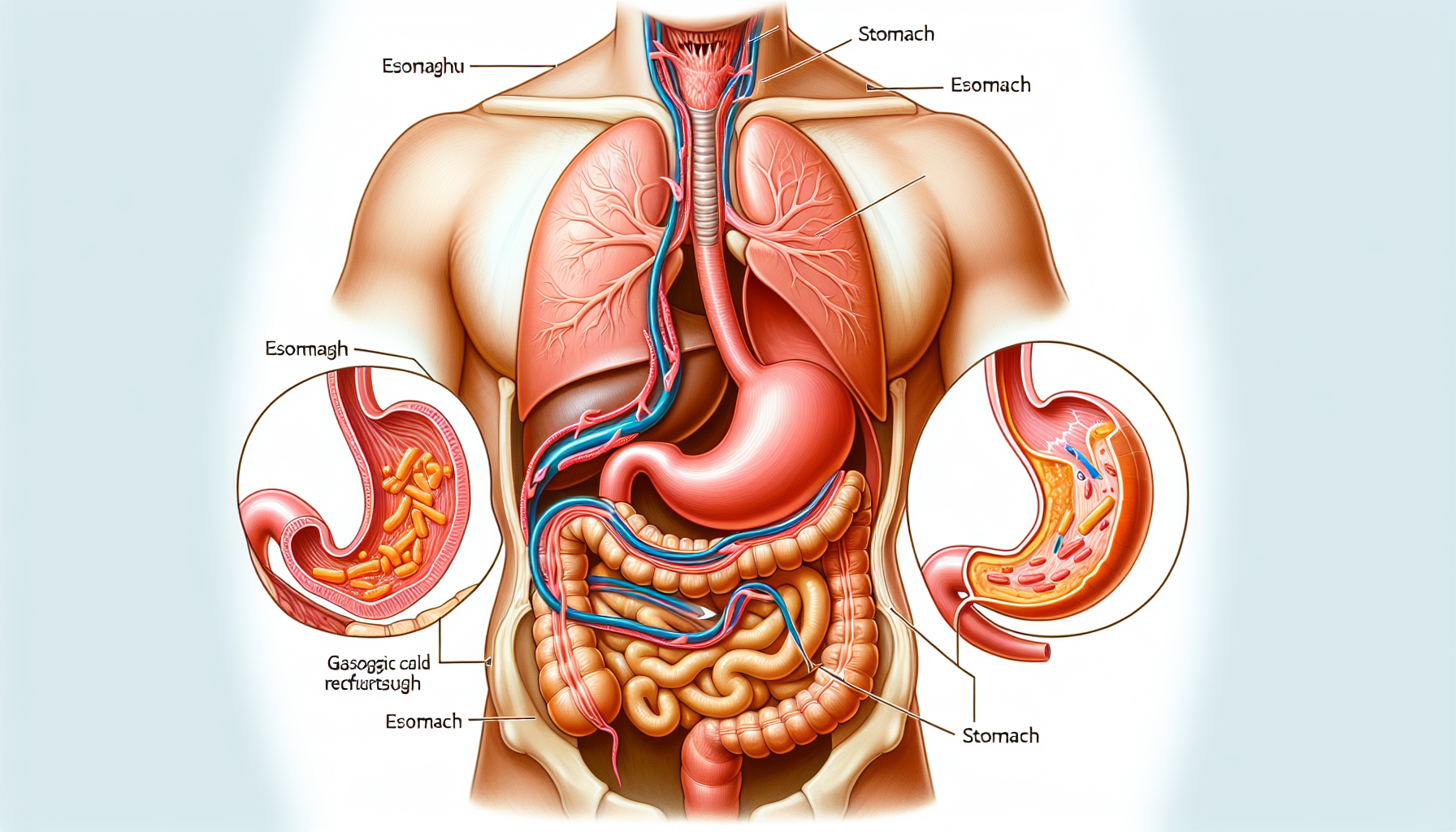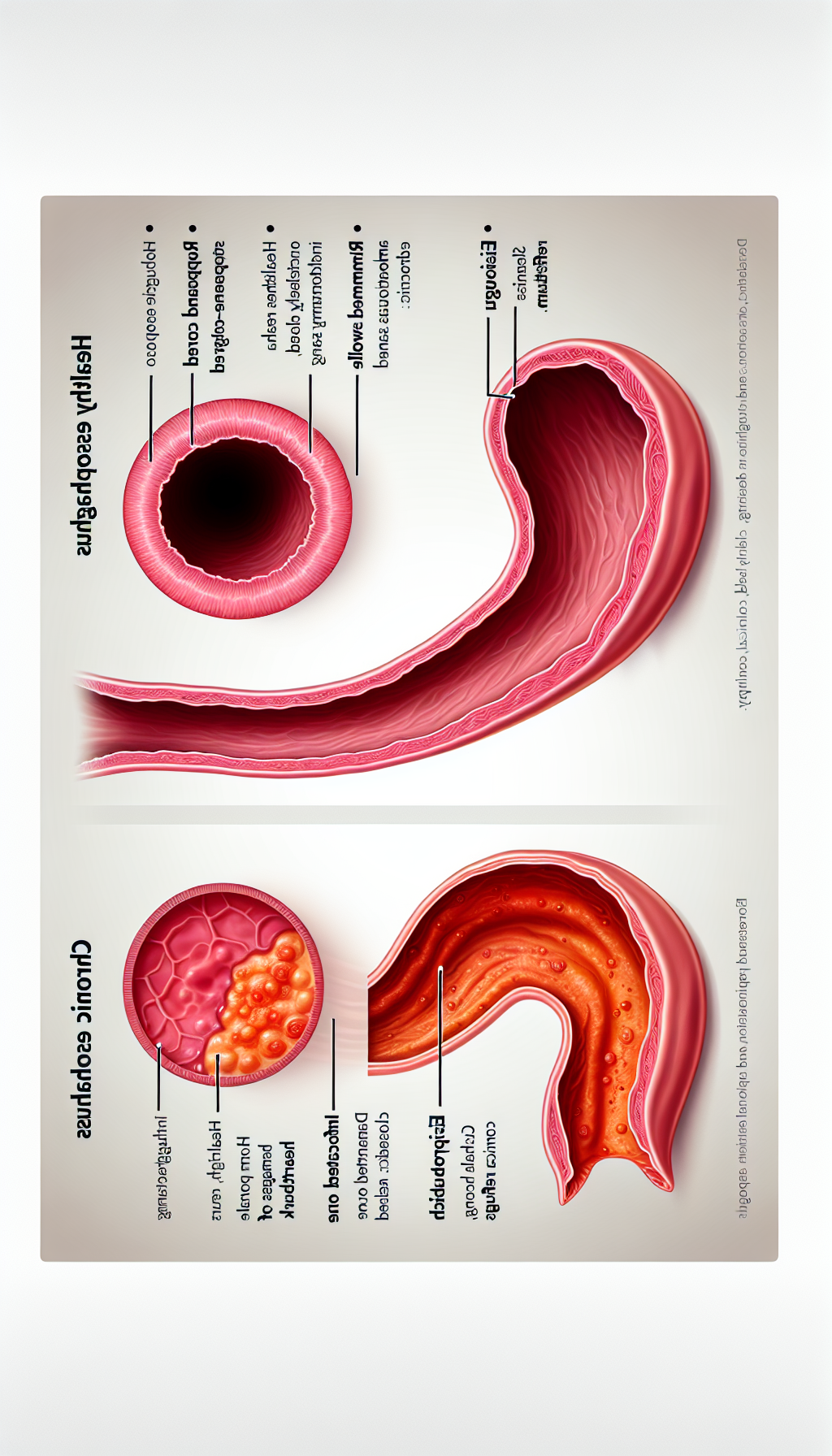Chronic heartburn, a symptom often associated with gastroesophageal reflux disease (GERD), can be more than just a temporary inconvenience. When experienced regularly, it can indicate underlying issues that may have significant consequences for gut health. This article explores the nature of chronic heartburn, its potential implications for the digestive system, and strategies for management and prevention.
Understanding Chronic Heartburn
Chronic heartburn occurs when stomach acid frequently flows back into the tube connecting your mouth and stomach (esophagus). This backwash (acid reflux) can irritate the lining of your esophagus, causing the discomfort known as heartburn. Symptoms may include a burning sensation in the chest, usually after eating, which might be worse at night, chest pain, difficulty swallowing, and the feeling of a lump in your throat.
The Connection with Gut Health
The health of our gastrointestinal (GI) tract, or gut health, is crucial for digestion, nutrient absorption, and overall well-being. Chronic heartburn can lead to more severe conditions, such as esophagitis, Barrett’s esophagus, and even esophageal cancer. Additionally, persistent acid reflux can disrupt the balance of the gut microbiome, which is vital for maintaining digestive health.
For those seeking a deeper understanding of gut health and its importance, further information can be found on Avix Health’s Digestive Health page, offering a comprehensive look into maintaining a healthy digestive system.
Addressing the Issue Through Diet
Diet plays a pivotal role in managing chronic heartburn. Certain foods and beverages can trigger reflux symptoms, such as fatty or fried foods, tomato sauce, alcohol, chocolate, mint, garlic, onion, and caffeine. Making dietary adjustments can significantly reduce the frequency and severity of heartburn episodes. For instance, Addressing Acid Reflux through Dietary Adjustments provides practical guidelines for modifying your diet to alleviate symptoms.
Herbal Remedies and Alternative Approaches
In addition to dietary changes, herbal remedies can be a beneficial complement to managing chronic heartburn. Herbs such as ginger, chamomile, licorice, and slippery elm have been traditionally used to soothe the GI tract and provide relief from reflux symptoms. For an in-depth exploration of natural treatments, consider reading about Combating Digestive Health Issues with Herbal Remedies.
The Role of Lifestyle Modifications
Lifestyle changes can also make a significant impact on chronic heartburn management. These can include quitting smoking, reducing alcohol consumption, losing weight if overweight, eating smaller meals, and avoiding eating close to bedtime. Engaging in regular physical activity can also help, as outlined in the resource on The Role of Yoga in Improving Digestive Function, highlighting how certain yoga poses can aid digestion and potentially reduce reflux incidents.
Medical Treatments and the Risks of Overuse
For many individuals, over-the-counter antacids and prescription medications are a go-to solution for heartburn relief. However, their long-term use can have unwanted effects on digestion and nutrient absorption. The Risks of Overusing Antacids and Their Impact on Digestion discusses the potential drawbacks of antacid overuse and alternative approaches to managing symptoms.
When considering medical treatments, it is essential to consult with healthcare professionals. Proton pump inhibitors (PPIs) and H2 receptor blockers are common treatments that reduce stomach acid production. However, prolonged use should be carefully monitored due to potential side effects, such as increased risk for bone fractures, kidney disease, and vitamin B12 deficiency.
External Resources for Further Reading
For those interested in the broader implications of dietary choices on health, the following resources offer valuable insights:
- A scholarly article on the impact of dietary patterns on esophageal health, providing evidence-based information on how certain foods can influence the risk of reflux and esophageal disorders.
- An in-depth review on the role of herbal medicines in gastrointestinal disorders, presenting a scientific analysis of various herbs and their efficacy in treating digestive issues.
- An expert consensus on the management of GERD, which offers a comprehensive overview of current best practices for treating chronic heartburn and related conditions.
A Holistic Approach to Chronic Heartburn
Ultimately, managing chronic heartburn and maintaining gut health requires a multifaceted approach. It involves a combination of dietary adjustments, lifestyle modifications, and possibly medical interventions. By understanding the triggers and implications of chronic heartburn, individuals can take proactive steps to alleviate symptoms and protect their digestive health.
Remember, it is crucial to work with a healthcare provider to develop a personalized plan that addresses your specific needs and conditions. Together, you can create a strategy that not only mitigates the discomfort of chronic heartburn but also promotes long-term gut health and overall wellness.



